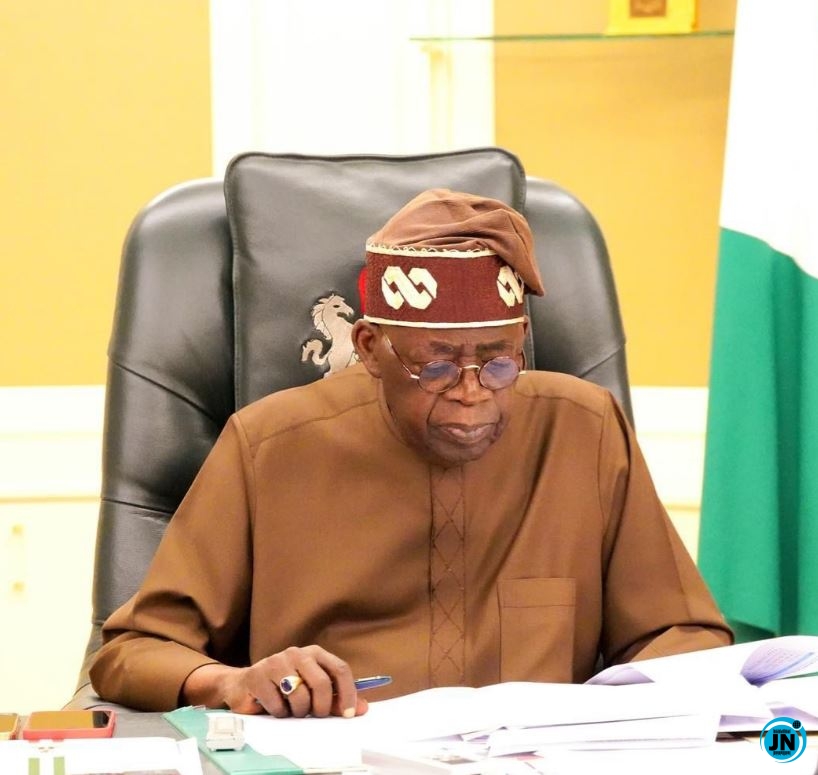The Nigerian government has spent a significant sum of approximately ₦1.4 billion over the past 18 months on initiatives aimed at rehabilitating repentant terrorists and setting up terrorism trial centres across the country. These expenditures were made in response to the growing need to address terrorism in a more structured and organized manner, as part of broader counter-terrorism efforts.
This effort follows the signing of the Terrorism (Prevention and Prohibition) Bill by former President Muhammadu Buhari on May 12, 2022. The bill led to the establishment of the National Counter-Terrorism Centre (NCTC), which now plays a central role in Nigeria's counter-terrorism strategy. Rear Admiral Yem Musa (retd.), the Coordinator of the NCTC, shared this information during a session with the House of Representatives Committee on National Security and Intelligence. He revealed that ₦2.4 billion of the ₦3.8 billion allocated for the NCTC’s 2023 capital projects would be used for developing rehabilitation centres for repentant terrorists and improving facilities related to terrorism trials.

According to an investigation by The PUNCH, conducted using GovSpend, a platform dedicated to tracking federal expenditures, the Ministry of Justice allocated ₦1.4 billion between December 2022 and May 2024. This sum was earmarked for the construction and renovation of facilities designed for the rehabilitation of repentant terrorists, as well as for upgrading facilities meant for terrorism-related trials.
Details about the allocation of funds show that on March 27, 2023, ₦612 million was awarded to three companies for projects under the Operation Safe Corridor (OSC), a key initiative aimed at rehabilitating former Boko Haram members. Among the allocations, ₦286.7 million was directed to El-haby Concept Limited for the renovation of a facility at Giwa Barracks. Additionally, Interprise Limited received ₦21.5 million to provide consultancy services on rehabilitative infrastructure, while Fosab Global Energy Service Limited was given ₦303.7 million for the construction of a rehabilitation centre.
In 2024, an additional ₦179 million was allocated to three companies for similar projects. This included funds given to Jayjaysen Integrated Links Ltd for the purchase of computers and accessories intended to support terrorism trials. The remaining funds were allocated to Fosab Global Energy Service Ltd for the continuation of the construction of rehabilitation centres.
The NCTC has reported significant progress in prosecuting terrorist suspects. Notably, during Phase 5 and Phase 6 of the trials at the Kainji Detention Facility, a total of 325 terrorists were convicted, with sentences ranging from death penalties to prison terms of up to 70 years, depending on the severity of their crimes. Phase 5 trials, which took place in July 2024, saw 143 cases processed, resulting in 125 convictions. Phase 6 trials, which handled 237 cases, ended with 200 convictions. However, there has been no announcement regarding the timing or details of Phase 7 trials.
The secrecy surrounding the trials has generated mixed reactions across various sectors. Security experts and civil society groups have raised concerns, arguing that the lack of transparency could undermine the credibility of the trials. Lekan Jackson-Ojo, a security expert, expressed dissatisfaction with the fact that these "enemies of humanity" are shielded from public scrutiny, calling it a significant issue. Similarly, Chidi Omeje questioned whether the military might be inadvertently protecting individuals responsible for attacks on Nigerian personnel, thus potentially undermining the efforts to combat terrorism.
On the other hand, Kabir Adamu, another security expert, defended the confidentiality of the trials, citing national security concerns. He commended the government’s emphasis on prosecuting terrorism-related cases while underscoring the need for due process and transparency in the judicial system.
As these rehabilitation and trial efforts continue, there remains an ongoing debate on how to balance national security concerns with the public’s right to be informed about the proceedings. The situation reflects the broader complexities faced by Nigeria in addressing the persistent challenge of terrorism while seeking justice and accountability.

